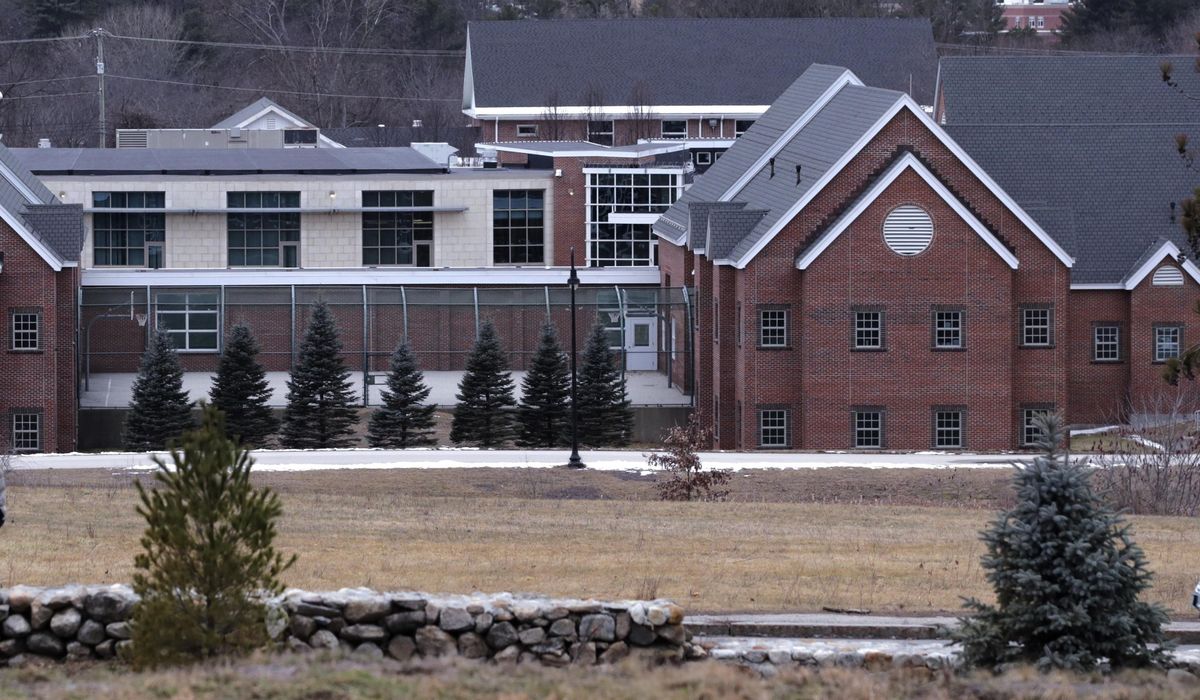


CONCORD, N.H. — A former leader at a New Hampshire youth detention center who was convicted of holding down a teen while he was raped in 1998 was sentenced Monday to 20 to 40 years in prison.
Bradley Asbury, now 70, was found guilty in November on two counts of being an accomplice to aggravated sexual assault.
Asbury had pleaded not guilty.
“With due respect to the court, I’m maintaining my innocence of these charges and do intend to appeal the convictions,” he said in the Manchester court before sentencing. “I would like to thank my family and friends for their support through this, through the process, for writing letters on my behalf and being here today. Thank you.”
Asbury’s wife, a stepson and a friend spoke on his behalf in court, saying he was a devoted family man and mentor.
Judge William Delker said he carefully read the letters, saying he believed Asbury is capable of showing the kindness that they described, but that that actually compounds the seriousness of what he did. Delker said Asbury took advantage of his authority and “crossed a line that cannot be crossed.”
Asbury served as a house leader at the Sununu Youth Services Center in Manchester. He was accused of restraining 14-year-old Michael Gilpatrick on a staircase with help from a colleague, while a third staffer raped the teen and a fourth forced him to perform a sex act.
It was the second criminal trial to stem from a broad 2019 investigation into longstanding abuse at the center. Asbury is among 11 men who worked there or at an associated facility in Concord who were arrested.
The case turned on the testimony of Gilpatrick, now 41. He said he’d struggled to cope with the attack for many years and that talking about it at the trial was part of a healing process.
He said he wanted to hold the perpetrators accountable and recalled having an out-of-body experience during the attack.
“I can see it happening, but I can’t do anything,” he testified. “I was just not there. But there.”
Gilpatrick’s wife, Kelly Gilpatrick, addressed Asbury before sentencing Monday, saying, “the jury saw through you, and they saw you for who you truly are.” She said the damage Asbury did was real and will never be erased.
Asbury’s lawyer, David Rothstein, asked that his client’s age and the characteristics described by his family and friends be taken into account for the sentence.
During the trial, Rothstein said Gilpatrick falsely Asbury of a crime “that he not only didn’t commit, but which, in every shape and form, was virtually impossible to commit.”
Asbury had been fired from a pre-trial facility in Concord in 1994 over allegations of physical and psychological abuse but was later rehired and transferred to Manchester, where he worked until 2001. In Asbury’s termination letter, the director of the state Division for Children, Youth and Families, said Asbury had repeatedly misused his supervisory position, was largely responsible for the facility’s “hostile environment” and had failed to provide a safe environment for children. But after he sued her, he was reinstated with back pay.
Two other cases against former workers at New Hampshire’s youth detention center alleging rape have ended in mistrials after jurors deadlocked.
The investigation has also led to extensive civil litigation. More than 1,100 former residents have filed lawsuits alleging physical, sexual or emotional abuse spanning six decades. In the only civil case to go to trial so far, a jury awarded David Meehan $38 million in May for abuse he says he suffered in the 1990s, though that verdict remains in dispute as the state seeks to reduce it to $475,000.
The Associated Press generally does not identify those who say they were victims of sexual assault unless they have come forward publicly, as Meehan and Gilpatrick have done.
